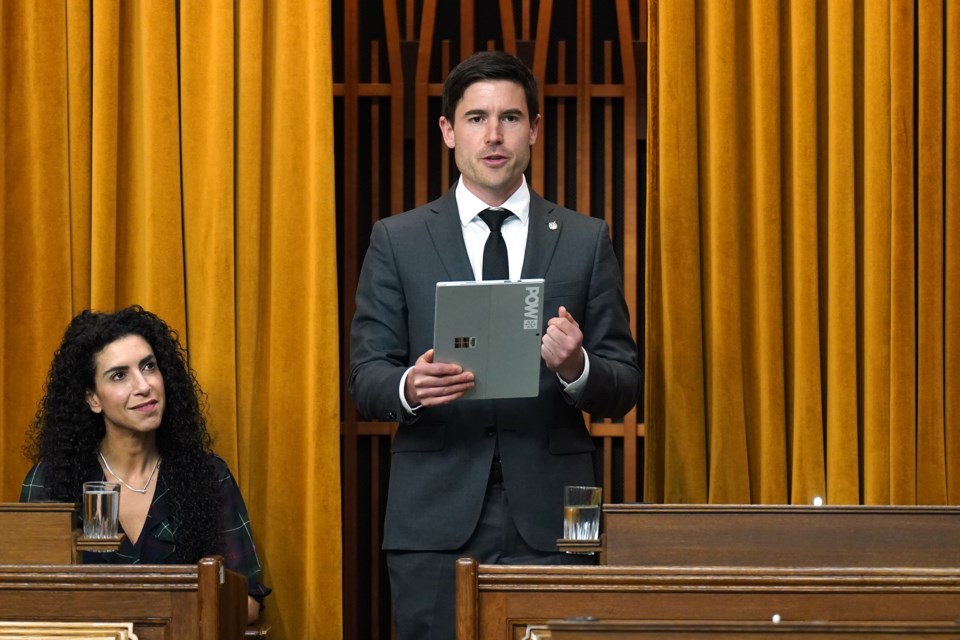For the first time, the federal government has recognized Canadians’ right to a healthy environment.
It’s one of several sweeping amendments to the Canadian Environmental Protection Act (CEPA) that became law when Bill S-5, the Strengthening Environmental Protection for a Healthier Canada Act, received royal assent on June 13. Its passing marks the first update to Canada’s primary piece of environmental legislation since 1999.
West Vancouver-Sunshine Coast-Sea to Sky Country MP Patrick Weiler successfully proposed an amendment to the act defining a healthy environment as one that is “clean, healthy and sustainable.”
In legally recognizing that right, Canada joins “about 160 other countries around the world that already have this,” said Weiler, “so it was very long overdue.” The broader definition aligns with international best practices, he added.
The CEPA amendments were already years in the making by the time the Senate introduced Bill S-5 in February 2022. A 2017 parliamentary review of CEPA resulted in 87 recommendations for strengthening the act, which regulates a long list of topics ranging from air and water quality, toxic substance management and biodiversity protections to greenhouse gas emissions, plastic pollution and animal testing, among others.
Elaine MacDonald, healthy communities program director with environmental law charity Ecojustice, has lobbied for stronger environmental protections alongside stakeholders from the David Suzuki Foundation, Environmental Defence, Canadian Association of Physicians for the Environment and Breast Cancer Action Quebec since 2016.
She called CEPA's modernization “a big victory.”
How does Bill S-5 change the existing Canadian Environmental Protection Act?
Advocates “definitely got a lot of the improvements we wanted, but not everything,” MacDonald explained. “There's certainly some things that are outstanding that we still believe need to be strengthened.”
Both MacDonald and Weiler named tougher air quality regulations as one proposed amendment they were disappointed to see left on the cutting room floor, for example.
The broad legislation does effectively lay out stronger chemical management protocols, including a new requirement to consider the cumulative effects of toxic chemicals on the environment and human health, rather than potential impacts of each individual substance on its own. The amended CEPA also establishes new timelines for toxin assessments, providing Canadians with the ability to request governmental review of a particular chemical—and the assurance that their request will receive a response from the Ministry of Environment.
Additionally, the act includes several provisions aimed at replacing, reducing or refining animal use in toxicity testing.
In a release, BC SPCA chief scientific officer Dr. Sara Dubois said the organization is “thrilled” to see legislation phasing out chemical toxicity testing on animals. “Toxicity testing is among the most harmful and painful uses of animals in scientific research, and shifting to non-animal alternatives will save hundreds of thousands of animals each year from severe pain, extreme distress and even death,” she explained.
Under the umbrella of the right to a healthy environment—and the government’s duty to protect it—Bill S-5 also requires lawmakers to uphold environmental justice, acknowledge vulnerable populations who may be disproportionately affected by adverse environmental impacts, and ensure intergenerational equity when considering that right.
“So when we're thinking about how we're going to regulate toxins in the environment, we’re thinking about not just current, but future generations, as well,” Weiler explained.
That right isn't absolute: the amendment carries the caveat that governments may need to balance an individual’s right to a healthy environment with other relevant considerations, like social, economic, health and scientific factors. The act does, however, include a non-regression clause aimed at preventing any walking back of the new regulations.
What's missing?
How exactly the right to a healthy environment will be protected remains to be seen. The clock has already started ticking on the government’s two-year deadline to develop an implementation framework detailing how the act will operate. The Ministry of Environment is expected to invite both the general public and experts to weigh-in on what that framework should include.
The CEPA section regulating enforcement remains unchanged from the original version, leading to questions about how binding that new right will be in practice.
“It’s kind of a missing piece,” said MacDonald.
Ecojustice had pressed the government to update CEPA’s existing “citizen enforcement” provisions to eliminate the legal limitations and cost barriers currently preventing citizens from taking action against polluters. But in the final bill, “there was no inclusion of any updates to the sections around citizen enforcement and environmental protection actions, which are some of the earlier sections of CEPA,” said MacDonald, “We were disappointed with that.”
She added: “We need to make sure they do a good job of implementing this new legislation and actually use it to strengthen protections from chemicals and toxic pollutants, and that it not just be sitting as a straw dog with no teeth.”
MacDonald said she’s hopeful several major gaps stakeholders have identified will be addressed during the act's implementation framework development process. If not, officials within the Liberal government have already hinted at the possibility of introducing another bill aimed at further strengthening environmental protections.
“Now that this legislation is passed, there is a future round of CEPA reviews that are now being consulted on that we're hoping to be able to introduce in the not too distant future,” said Weiler.




